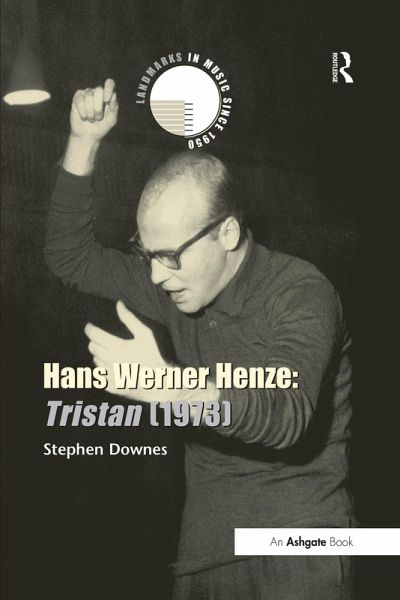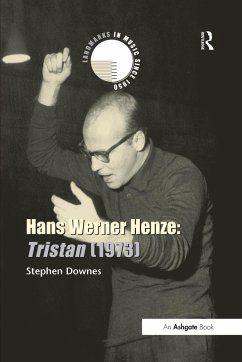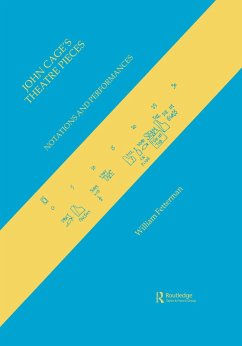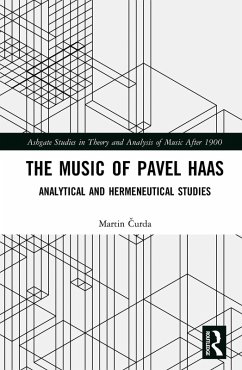
Hans Werner Henze: Tristan (1973) (eBook, ePUB)
Versandkostenfrei!
Sofort per Download lieferbar
38,95 €
inkl. MwSt.
Weitere Ausgaben:

PAYBACK Punkte
19 °P sammeln!
Hans Werner Henze is a prolific and internationally famous composer of the post-Second World War period. He is amongst the most frequently performed and recorded composers of his generation, and has been the subject of numerous festivals in several continents. But he is also a composer of controversy. His music has stimulated a critical polemic of notable vigour. Tristan (1973), Henze's large-scale work for piano, full orchestra and electronic tape explores Henze's creative stance with regard to Wagner. The work represents a powerful contribution to the 'tradition' of Tristan-alluding twentiet...
Hans Werner Henze is a prolific and internationally famous composer of the post-Second World War period. He is amongst the most frequently performed and recorded composers of his generation, and has been the subject of numerous festivals in several continents. But he is also a composer of controversy. His music has stimulated a critical polemic of notable vigour. Tristan (1973), Henze's large-scale work for piano, full orchestra and electronic tape explores Henze's creative stance with regard to Wagner. The work represents a powerful contribution to the 'tradition' of Tristan-alluding twentieth-century works, those by Berg and Messiaen being amongst the best known. Tristan has been heard as a piano concerto and as a symphonic poem, and is a fine example of how a single piece can interrogate the styles, expressions, genres and aesthetics of major, often conflictual, trends in European culture. In this book, Stephen Downes begins by placing Henze's Tristan in its wider context and in the context of Henze's compositional output and writings. He considers Henze's description of the genesis of the work by examining row tables and sketches, draft and annotated parts, and a full score with corrections and conductor's annotations. This analysis of form raises issues of genre, harmony and melody, temporality, unity and intertextuality, and places the work in the formal aesthetics characteristic of romanticism, modernism and 'postmodernism'. Key concepts in the critical legacy of Tristan are discussed and the book concludes by considering Henze's later works, placing the techniques and aesthetics of Tristan in the context of the composer's subsequent developments. The book is accompanied by a CD containing the 1975 DG recording of Tristan conducted by Henze.
Dieser Download kann aus rechtlichen Gründen nur mit Rechnungsadresse in A, B, BG, CY, CZ, D, DK, EW, E, FIN, F, GR, HR, H, IRL, I, LT, L, LR, M, NL, PL, P, R, S, SLO, SK ausgeliefert werden.













